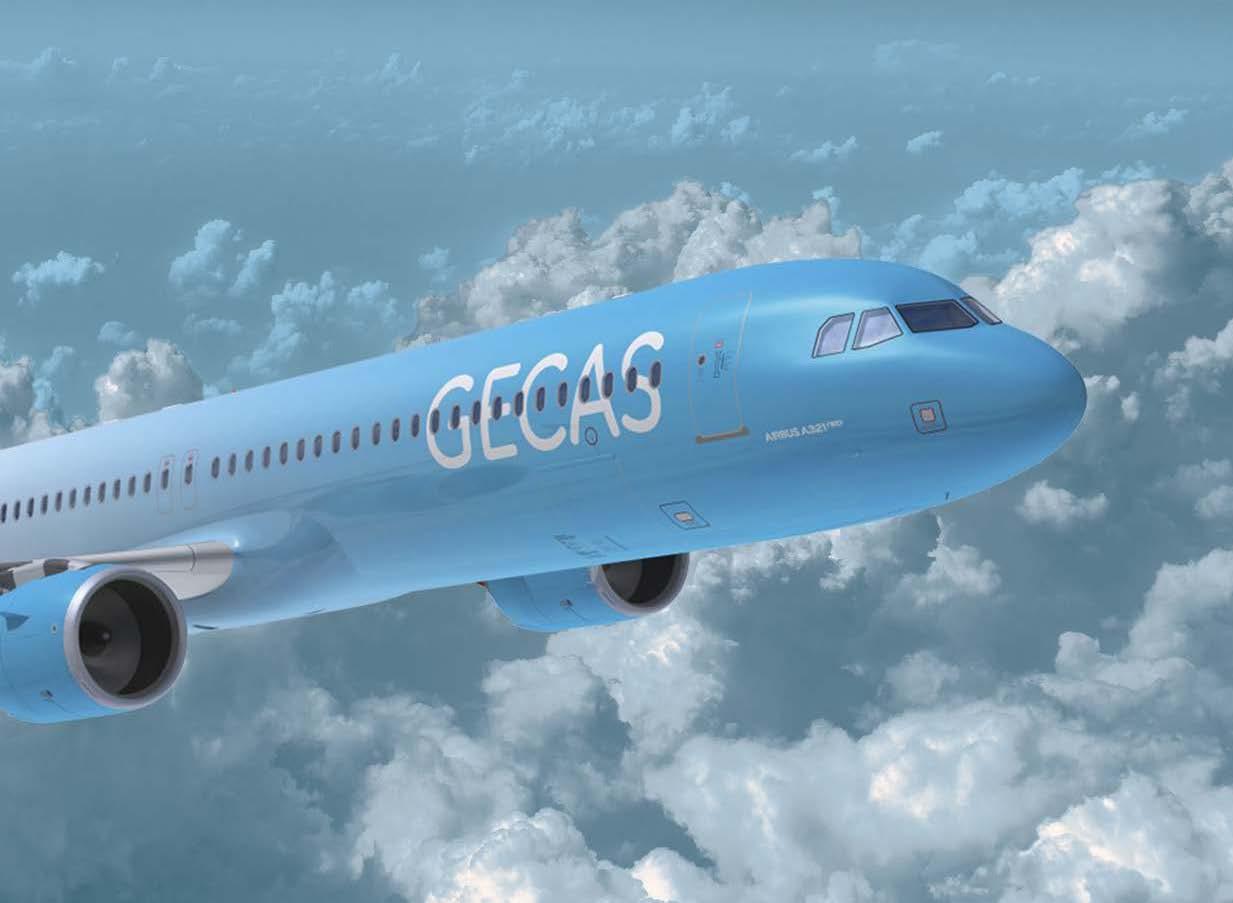
GECAS parent General Electric (GE) and AerCap are in talks to combine the two leasing businesses.
AerCap confirmed in a regulatory filing March 9 that “discussions are ongoing.” The Irish company warned, however, that “the outcome of those discussions has yet to be determined, and there can be no guarantee that an agreement will be reached or on the terms of any agreement.” The lessor plans to make no further comment until talks are concluded.
With portfolios well in excess of 1,000 aircraft each, AerCap and GECAS are by far the two market leaders in the global aircraft leasing industry. A combination of the two would boast a fleet more than four times as large as that of Avolon, currently the number three lessor with a fleet of around 550 aircraft. According to Aviation Week Intelligence Network Fleet and Data Services, GECAS currently has a fleet of 1,182 aircraft. AerCap had 1,044 at the end of December 2020.
Few details about the planned transaction are known so far. GE chairman and CEO Larry Culp has been trying to turn around the conglomerate with a view to exiting businesses that are no longer considered to be core to the group or that generate substantial cash. AerCap CEO Aengus Kelly, by contrast, has been clear in promoting the growth prospects of aircraft leasing.
Kelly said in a March 2 investor conference that there will be a “structural shift to leasing aircraft” as airlines will have “muted appetite for aircraft purchases” while still having to provide more capacity in the recovery from the pandemic. In consequence, there will be “increased dependence on access to lessor order books and on sale-and-lease-back deals to raise capital from the fleets,” opening up strong growth opportunities to the leasing industry.
Both GECAS and AerCap had to take financial hits in 2020 through aircraft impairments and renegotiate many leases with their customers.
Financial analysts were quick to see the potential of such a merger. “The combination creates efficiencies, but also a powerhouse in the aircraft leasing market, an important element of the recovery from the downturn,” said Sheila Kahyaoglu and Greg Konrad of Jefferies. “The combined company is by far the largest lessor in the market with incremental opportunities surrounding engines and helicopters, with the next largest being Avolon with 576 aircraft.”
The portfolio would be “heavily” weighted toward narrowbodies with close to 1,500 single-aisles versus around 400 widebodies, and another 177 regional jets. More than 95% of the combined fleet would be passenger aircraft with the remainder freighter aircraft. Alone, the super-lessor would be responsible for 3.5% of Boeing’s backlog and 4.5% of Airbus’.
“The combination of the two largest lessors would allow for greater scale within the market and a source of liquidity given a portfolio of high-quality assets,” Kahyaoglu and Konrad said March 8 before the official announcement.
However, others see limited advantages of big lessors becoming even bigger. “I don’t need another platform if I’m an investment grade lessor,” Credit Suisse analyst Moshe Orenbuch said before the AerCap/GECAS talks became known. “Unlike at an airline, there are only small additional benefits.”
The deal raises more questions about how Avolon may react. The company is majority owned by Bohai Capital, a subsidiary of HNA Group. Orix Capital has a minority stake. There has been speculation that HNA may want to exit the leasing business as part of its corporate restructuring process. Avolon CEO Domhnal Slattery said in February that major consolidation moves among the top ten lessors within the next year or two will lead to a “smaller number of bigger players,”
Both AerCap and GECAS can trace back their origins to legendary former Irish leasing giant Guinness Peat Aviation (GPA), which, along with Steven Udvar-Hazy’s International Lease Finance Corporation (ILFC), was one of the early pre-eminent players in growing the leasing sector to its current status.
GPA was the largest lessor in what was still a much smaller industry in the 1980s. Its spectacular demise started in 1990 when it placed an order for 700 aircraft for $17 billion. GPA bet on a 1992 initial public offering (IPO) to finance much of the investment, but at the time the industry was in a severe downturn following the 1991 Gulf War. The IPO flopped and, to avoid financial collapse, GPA was forced to sell an aircraft portfolio to newly founded GECAS. The GE affiliate also bought the option to buy a majority stake in GPA later—which it never implemented.
In 1998, private equity investor Texas Pacific Group bought a majority stake in GPA and renamed it AerFi Group. Two years later, AerFI Group was acquired by DaimlerChrysler affiliate debis AirFinance. In 2005 debis AirFinance was sold to another private equity firm, Cerberus Capital, which changed the company’s name again—to AerCap.
AerCap itself became an active buyer, taking over ILFC in 2013.






